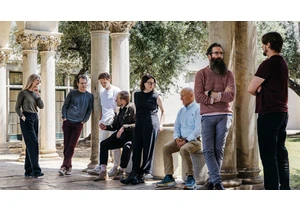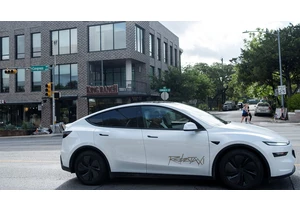When Reuters reported in April that Tesla had scrapped plans for a long-promised, next-generation $25,000 electric vehicle, the automaker’s stock plunged. Chief Executive Elon Musk rushed to respond on X, his social-media network.
“Reuters is lying,” he posted, without elaborating. Tesla’s stock recovered some of its losses.
Six months later, Musk appears to have backed into an admission that Tesla dropped its plans for a human-driven $25,000 car. He said in an Oct. 23 earnings call that building the affordable EV would be “pointless” unless the car was fully autonomous.
His latest remarks came in response to an investor asking: “When can we expect Tesla to give us the $25,000 non-robotaxi regular car model?”
Musk responded: “We’re not making a non-robo . . .,” before he was interrupted by another Tesla executive. Musk later added: “Basically, I think having a regular $25K model is pointless. It would be silly.”
The April 5 Reuters article reported that Tesla had abandoned plans for an all-new, affordable mass-market EV but still planned a self-driving robotaxi. Since then, Musk has increasingly touted plans for robotaxis and autonomous vehicles.
Tesla and Musk did not respond to requests for comment for this story.
On the October earnings call, Musk said that Tesla does plan a “$25K car”—its “Cybercab,” a two-door, two-seat, fully autonomous vehicle. Musk unveiled a prototype at a Hollywood-style event on Oct. 10.
Musk says Tesla will start production of the Cybercab in 2026, after it deploys fully autonomous versions of its current Model 3 and Model Y vehicles in Texas and California next year. The automaker faces steep technological, regulatory and legal challenges in delivering on Musk’s latest promises of fully autonomous vehicles, which echo others dating back about a decade.
An all-new affordable Tesla for human drivers had until recently been a linchpin of Tesla’s strategy to become the world’s biggest automaker. For several years, Tesla had a goal of producing 20 million vehicles a year by 2030, more than tenfold what it sells now and nearly double that of Toyota, the current global sales leader. In May, Tesla dropped the 20-million goal from its latest “impact report” on progress toward sustainability goals.
As recently as January of this year, Musk confirmed the plan for an all-new affordable EV in an earnings call. He said the next-generation vehicle would arrive in 2025 and launch a second major “growth wave,” following the first wave with the release of its Model 3 and Model Y vehicles in 2017 and 2020, respectively.
Investors and Tesla fans commonly called the anticipated cheap car a “Model 2,” slotting in below the Model 3, currently the least-expensive Tesla, starting at $42,490.
In January, Musk described the all-new model as requiring “new revolutionary manufacturing technology.” But in April, after Reuters reported Tesla had scrapped the Model 2, Musk outlined a plan for “more affordable” models that could be produced “on the same manufacturing lines” as current Teslas.
Seth Goldstein, a Morningstar Research Services analyst, said he believes these less-expensive vehicles will be built on current Tesla platforms and priced in the mid-$30,000s.
“It was my understanding that the original plan was to make the more-affordable vehicle on a new platform,” he told Reuters. “I think Tesla realized they were late to making an affordable vehicle versus their Chinese-EV peers . . . So, they changed their strategy rather than make a large investment to produce a new vehicle.”
After the April 5 Reuters report that Tesla had killed the Model 2, Musk posted that day on X saying Tesla planned a “robotaxi unveil” in August. The event, delayed until October and held on a movie set near Los Angeles, underwhelmed Wall Street and drove a 9% drop in Tesla shares the following day.
Some investors viewed Musk’s comments on the Cybercab–along with displays of an autonomous “Robovan” concept and humanoid robots—as short on concrete details about the products. Tesla hasn’t said whether the Cybercab will feature new self-driving technology beyond the company’s “Full Self-Driving” feature in its current vehicles. Its existing models can’t fully drive themselves and require a human driver paying strict attention.
The target market for the Cybercab isn’t clear. The Cybercab’s sports-car looks and two-door, two-seat configuration—a nearly extinct layout in the wider U.S. auto market—puzzled some analysts who expected a robotaxi with more room for passengers and luggage.
Musk, in the October earnings call, said the concept vehicle’s design was “optimized for autonomy” and would also deliver affordability.
“It will cost . . . roughly 25K, so it is a 25K car,” Musk said. “It just won’t have a steering wheel and pedals.”
—Chris Kirkham, Reuters
Inicia sesión para agregar comentarios
Otros mensajes en este grupo.

Two of the nation’s real estate titans are on a collision course.
Compass, one of the largest brokerage

A team of prominent AI researchers, led by Databricks and Perplexity cofounder Andy Konwinski, has launched Laude Institute, a new nonprofit that helps univers

YouTube star Jimmy Donaldson—aka MrBeast—is the face of the online video-sharing platform. He tops the platform’s most-subscribed list, with more than 400 million people following his exploits. On

Tesla deployed a small group of

Imagine you owned a bookstore. Most of your revenue depends on customers coming in and buying books, so you set up dif

For 13 years, Subway Surfers’ download rate has been consistent: about one million new installs every single day.
Half of those downloads come from users upgrading to new

Misbehavior on digital platforms can be tricky to manage. Issue warnings, and you risk not deterring bad behavior. Block too readily, and you might drive away your user base and open yourself to a
